Online
Summary:Join an international panel of experts for this Global Climate Change Week discussion about climate change and health.
Presenter(s):
- Dr Veronica Matthews, Director of the Centre for Research Excellence - STRengthening systems for InDigenous healthcare Equity (CRE-STRIDE), University of Sydney, Australia
- Dr Bob Manteaw, Senior Research Fellow, University of Ghana
- Professor Sharon Friel, Laureate Professor of Health Equity, Australian National University
- Professor Eugenie Kayak, Enterprise Professor in Sustainable Healthcare, University of Melbourne’s Melbourne Medical School
- Ms Rhiannon Osborne, Medical student, Cambridge University
- Professor Deborah McGregor, Canada Research Chair, Indigenous Environmental Justice, York University
- Hosted by Professor Kathryn Bowen, Deputy Director, Melbourne Climate Futures, Environment, Climate and Global Health, Melbourne School of Population and Global Health, University of Melbourne
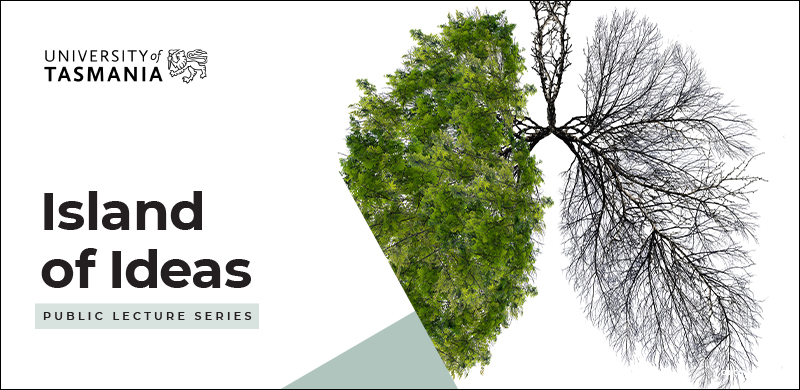
In its infancy, climate change was an environmental concern for future generations. Now we are experiencing a human health emergency, where healthcare systems have joined forces with our planet to beg us for immediate climate action.
The World Health Organisation says that environmental factors take the lives of around 13 million people annually, with causes including increased air pollution, disease, extreme weather events, forced displacement, food insecurity and pressures on our mental health.
Join an international panel of experts for this Global Climate Change Week discussion about climate change and health. Discover the impacts on the most vulnerable in our community, find out about sector efforts to reduce carbon emissions and discuss adaptive strategies to plan for and mitigate future climate-driven health disasters.
Speakers
Dr Veronica Matthews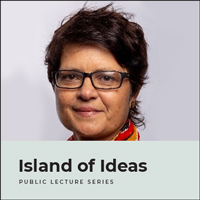
Veronica is a Quandamooka woman from Minjerribah who lives and works on Bundjalung Country at the University Centre for Rural Health, The University of Sydney. Her work centres on improving Aboriginal and Torres Strait Islander holistic health care systems (incorporating environmental, social and cultural determinants of health) through systems-thinking and community-based participatory research. She co-leads the Indigenous Knowledges theme within the Healthy Environment and Lives (HEAL) National Network and the Centre for Research Excellence in Strengthening Systems for Indigenous Health Care Equity (CRE-STRIDE). Both collaborations are multi-jurisdictional and transdisciplinary networks of service providers, policymakers and researchers working to embed Aboriginal and Torres Strait Islander knowledges and methodologies into inter-sectoral research to achieve health equity.
Dr Bob Manteaw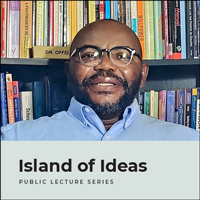
Bob Manteaw is currently a Senior Research Fellow at the Centre for Climate Change and Sustainability Studies of the University of Ghana. With a PhD in Sustainable Development Thinking and Practice was from the Washington State University, his research and teaching interests continues to explore critical and ever-evolving climate, environment, and sustainability transitions issues. He is particularly interested in catalytic and transformational learning processes for climate-resilient sustainable development. His most recent research works are focused on Climate-informed decision making in data poor environments; Climate and health impacts in marginalized communities; Planetary health framing and education, and post-pandemic imaginations of global health in a changing climate.
Professor Sharon Friel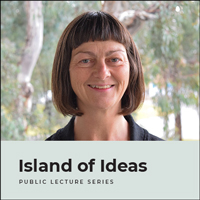
Sharon Friel is an ARC Laureate Fellow, Professor of Health Equity and Director of the Planetary Health Equity Hothouse and Menzies Centre for Health Governance at the School of Regulation and Global Governance (RegNet), Australian National University. Her research focuses on the political economy of health; governance and the planetary, social and commercial determinants of health inequities. Her book “Climate Change and the People’s Health” highlights the importance of addressing the global consumptogenic system. She is a Fellow of the Academy of Social Sciences of Australia, and on the Board of Directors of Health Justice Australia.
Ms Rhiannon Osborne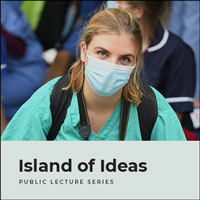
Rhiannon Osborne (she/her) is a 24 year old student doctor, climate & health justice activist, and researcher in health inequalities. She works at the local, national and international scale on equitable access to COVID-19 vaccines, planetary health, and health economics. She currently organises with the People’s Health Movement, Health for a Green New Deal and the Stop Cambo campaign to end oil and gas expansion in the UK. She is one of the co-founders of the People’s Health Hearing, a space for frontline communities to give testimony on the health impacts of extractivism, colonial violence and the climate crisis. Rhiannon is passionate about movement building, grassroots community work, radical reimagining of health and trying to work out how to be a healer in a broken world
Professor Eugenie Kayak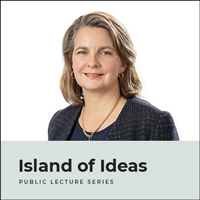
Eugenie is the Enterprise Professor in Sustainable Healthcare at The University of Melbourne’s Melbourne Medical School. She is also a public and private anaesthetist. Eugenie has a MPH (health economics) and MSc. For over a decade Eugenie has worked with Doctors for the Environment Australia (presently as convenor of their national Sustainable Health Care Special Interest Group) and her own anaesthetic specialty to raise awareness of, and address, the health impacts of climate change and environmental degradation. She has presented, taught and contributed to numerous sustainable health care publications, including DEA’s ‘Net zero emissions: responsibilities, pathways and opportunities for Australia’s healthcare sector Report’ and ‘Proposal for a National Sustainable Healthcare Unit’. Work with the Australian Medical Association has resulted in a collaboration calling for the Australian healthcare sector to be net zero carbon emissions by 2040 with an 80% reduction by 2030.
Professor Kathryn Bowen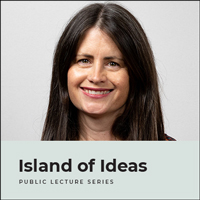
Kathryn Bowen holds a joint position at Melbourne Climate Futures and as Professor - Environment, Climate and Global Health in the School of Population and Global Health, Faculty of Medicine, Dentistry and Health Sciences. She is a leading, internationally-recognised expert on the science and policy of sustainability (particularly climate change) and global health issues, with 20 years experience in original public health research, science assessment, capacity development and policy advice. She is regularly commissioned by international bilateral and multilateral agencies (e.g. WHO, UNEP, UNDP, ADB, GIZ, DFAT) to co-design solutions for sustainable futures. She is a Lead Author on Intergovernmental Panel on Climate Change (IPCC) Working Group II.
Professor Deborah McGregor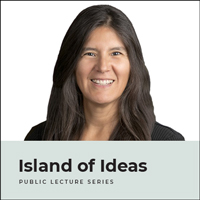
Deborah McGregor (Anishinabe), Whitefish River First Nation is Associate Professor and Canada Research Chair in Indigenous Environmental Justice at York University. Her research has focused on Indigenous knowledge and legal systems and their various applications in diverse contexts including water and environmental governance, environmental and climate justice, health and environment and sustainability.
